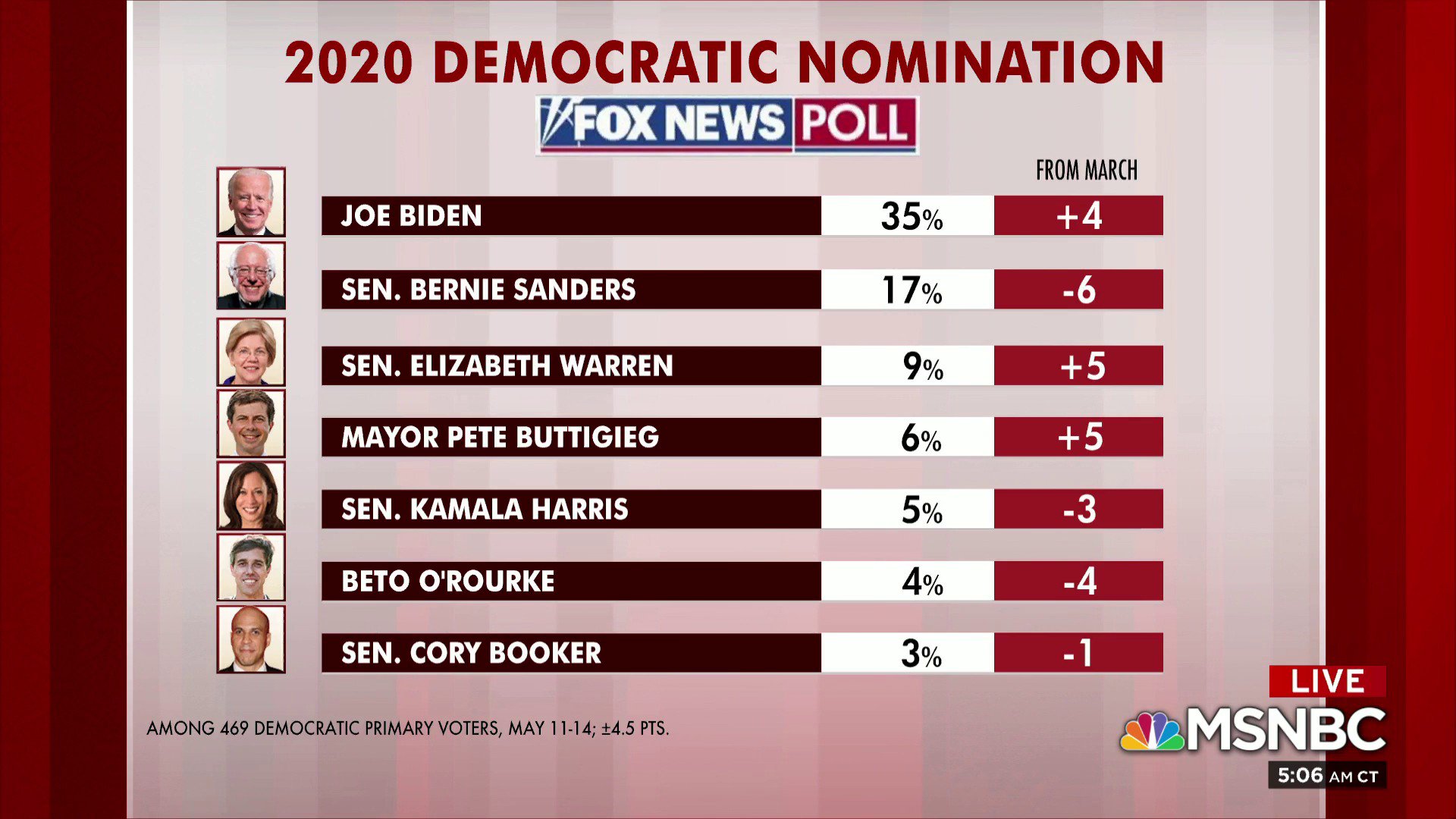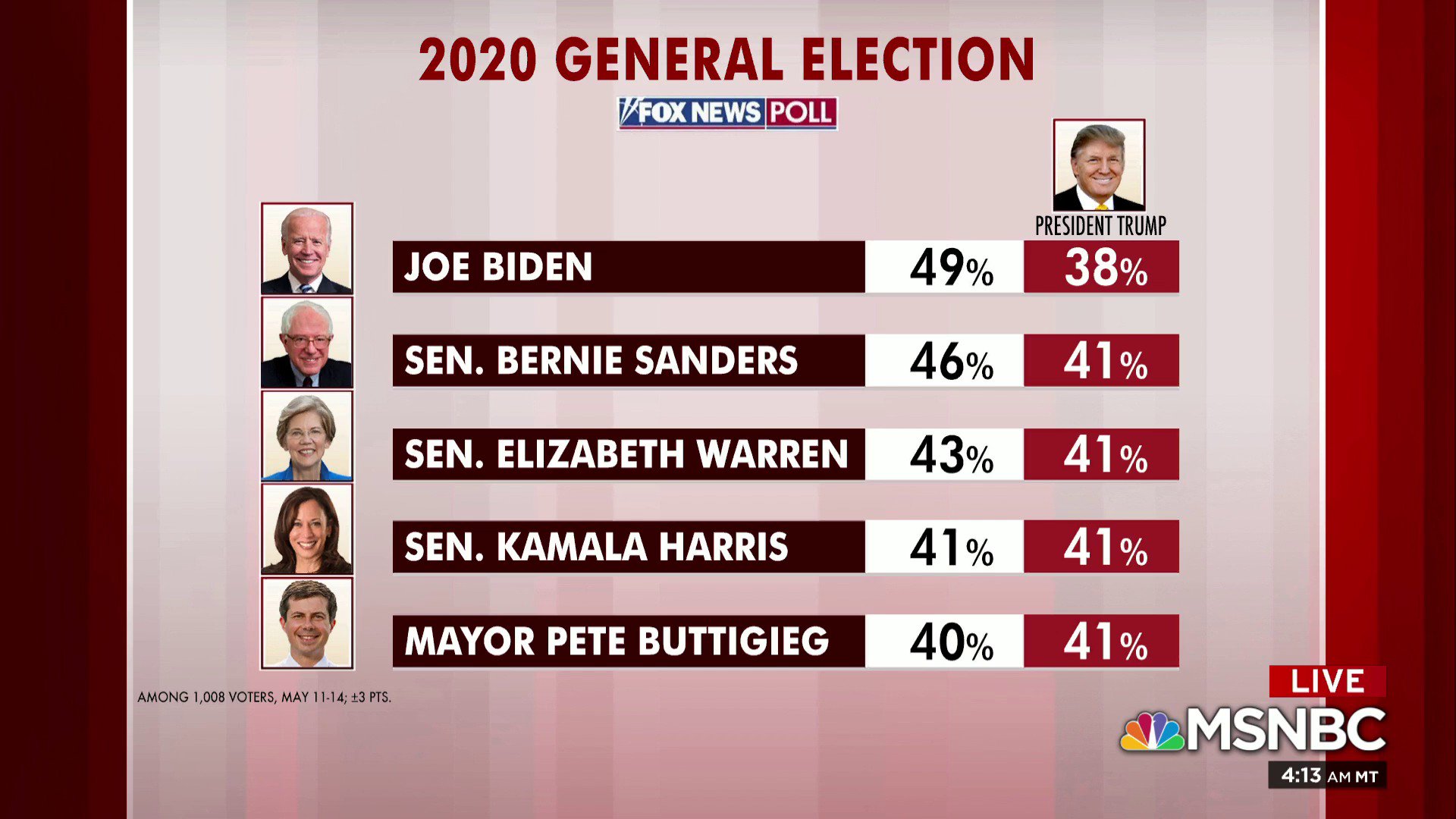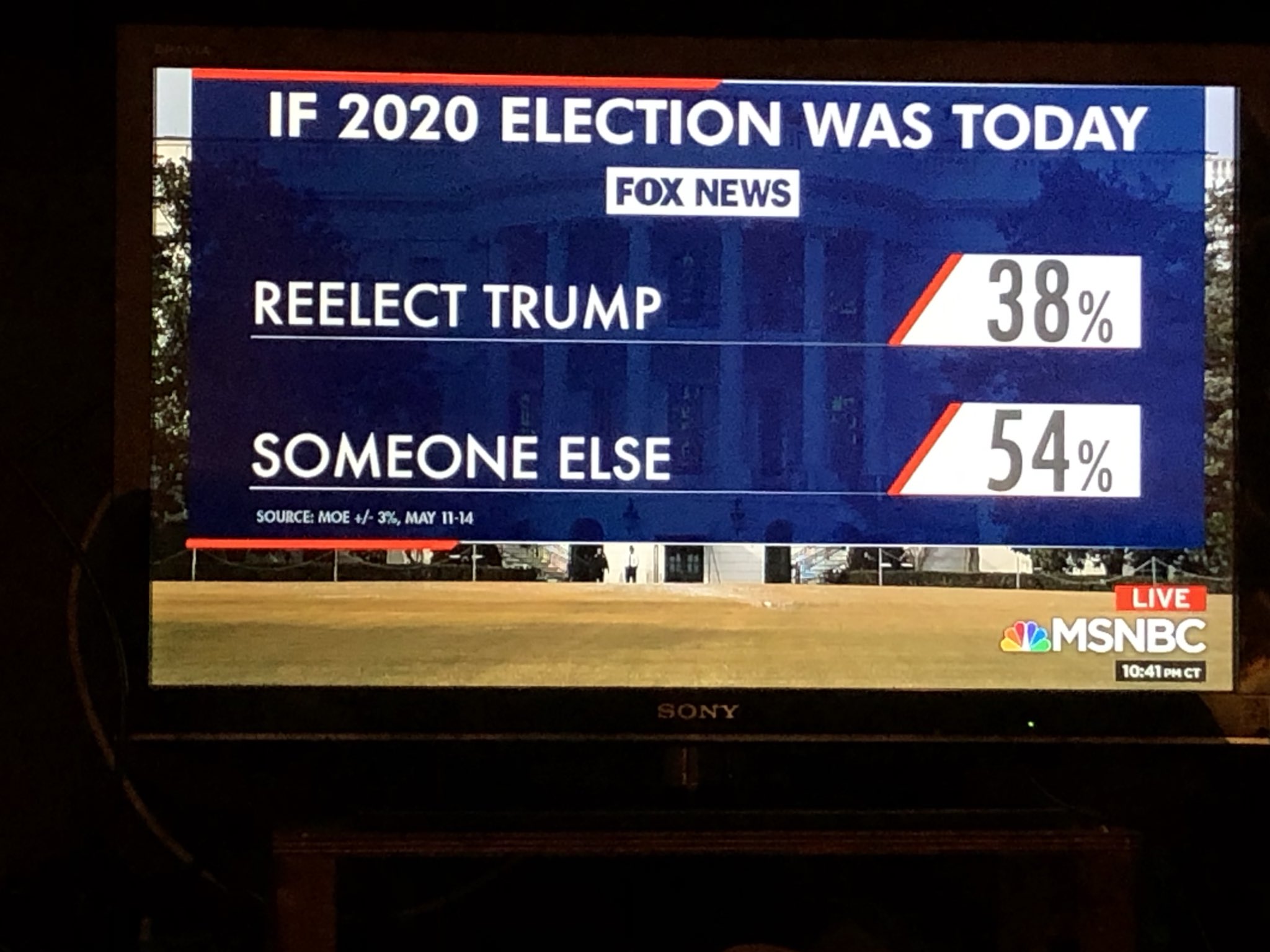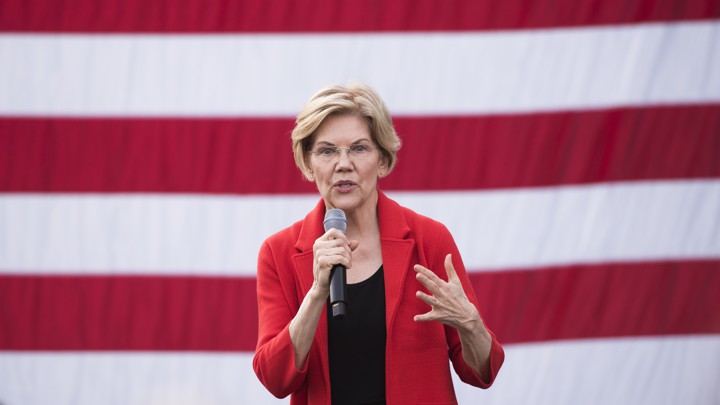Elizabeth Warren Takes a Different Strategy to Court the Black Vote
Elizabeth Warren Takes a Different Strategy to Court the Black Vote
The Massachusetts senator is betting big on higher-education funding.
Adam Harris2:42 PM ET
Elizabeth Warren is leading the 2020 field in ambitious policy proposals.Cliff Owen / AP
“Race matters,” Senator Elizabeth Warren told me in an interview last Wednesday, “and we need to face it.” Two days earlier, Warren became the latest Democratic presidential hopeful to
make the trek to North Philadelphia with Randi Weingarten, the president of the American Federation of Teachers, to meet with union members. These town halls have a rhythm: Brief remarks from Weingarten, a short monologue from the candidate, and then questions from the most important people in the room: teachers. After Warren’s speech, she was pressed about the growing wall of student debt—and it drew out her higher-education pitch.
The Massachusetts senator and former law professor launched into a lecture about how to reform paying for higher education, declaring, “We need to talk about the racial dimension of this head on.” She ran down the stats. “Students of color are more likely to have to borrow money to go to college, they borrow more money when they’re in college, and they have a harder time paying for it when they get out of college,” Warren said. There was a difference, a systemic one, she argued, and the policy makers needed to fix it.
Warren’s early 2020 platform has reflected a need to remedy that difference—and higher education is not the only arena where her policy approach addresses America’s legacy of discrimination. From housing to health care, her message in many ways intentionally places an emphasis on race and wealth. In recent years, candidates have placed an emphasis on black outreach as part of their get-out-the-vote efforts, whether that means playing up one’s
black bona fides, like Senator Kamala Harris, or sitting down with
Al Sharpton at Sylvia’s in Harlem, like Mayor Pete Buttigieg of South Bend, Indiana. But what Warren is doing this spring is unique: She is offering a detailed body of policy to go alongside platitudes.
“It’s not an accident,” Warren told me, that the road to economic security “is even tougher and rockier for black families.” She points to property as an example. “Homeownership is the No. 1 way middle-class families build wealth, so it’s no surprise that for decades the federal government subsidized the purchase of housing for white families, but denied that to black families,” she says.
Warren is making the bold wager that people will go to the polls next year motivated by policy. In survey after survey, voters suggest that
policy is top of mind; reality tends to paint a much different picture. Still, Warren is also gambling simply by releasing such extensive policies—including
breaking up Big Tech,
reforming the Department of Defense, and providing
debt relief to Puerto Rico—so far in advance of the first primary caucuses. “It is risky to put out plans in as many areas which each have a constituency,” Heather McGhee, a senior fellow and the former president of Demos, a liberal think tank, told me. “But it shows a basic level of compassion for the voter.”
When Warren presented her
higher-education policy in late April, one of seemingly countless lengthy policy proposals she has laid out this election cycle, her move to cancel student debt grabbed headlines, and rightly so. More than 40 million Americans are saddled with student debt, but it is unequally distributed among whites and people of color. As the reaction to the news of the billionaire venture capitalist Robert Smith
pledging to pay off the student debt of Morehouse graduates showed, black borrowers are more likely to struggle with loans. That’s why, Warren says, her plan contains other notable features, namely a $50 billion fund for historically black colleges and other minority-serving institutions, and tuition-free public colleges, a wedge issue for Bernie Sanders during his 2016 run.
Black colleges
have been asking federal lawmakers for more funding for years to account for
more than a century of underfunding. Still, as Howard University’s president, Wayne Frederick,
put it last week, the institutions “out-punch their weight class.” He pointed to a
National Science Foundation study showing that in the time Harvard, Yale, Stanford, and MIT—with a combined endowment in the tens of billions of dollars—had 221 of their black undergraduates earn doctorates in STEM fields, Howard had 220 on its own.
Several days after Warren’s initial policy was released, she added a provision to allow private historically black colleges, such as Morehouse, Howard, and Dillard University, in New Orleans, to opt in to her tuition-free model. “Black Americans were kept out of higher education, and federal and state governments poured money into colleges that served almost exclusively white students,” Warren told me. “This is a chance for African American students to make choices on a level playing field about where they want to be in schools not driven by tuition costs.”
The proposals have been welcome in the black college community—even though the mechanics of exactly how the fund will operate are still a bit messy. Several candidates talk about supporting black colleges, but few have made it a plank in their policy platforms. “Anytime you’re going to put more resources into a sector that has not been historically funded, it is significant,” Michael Sorrell, the president of Paul Quinn College, a historically black college in Dallas, told me. But he expressed some caution; after all, Warren’s ambitious proposals will require support from Congress, and even
modestly routine higher-education legislation has had trouble passing in the Capitol.
Other Democratic candidates have started rolling out their own proposals to address America’s continuing legacy of racial discrimination. Last weekend, Senator Bernie Sanders released his education plan, which emphasizes rectifying school segregation. Sanders calls his blueprint the Thurgood Marshall Education Plan, in a nod to the lawyer turned Supreme Court justice who argued for the plaintiff in
Brown v. Board of Education, the landmark Supreme Court case establishing that racial segregation in public schools was illegal. Several candidates, including Warren, Harris, and former Housing and Urban Development Secretary Julián Castro, have suggested that the federal government should study the effects of slavery and segregation to jump-start the national conversation about reparations. Senator Cory Booker has pitched the idea
of baby bonds, which would provide low-income children with a savings account of up to $50,000, a move that scholars have suggested could help close the wealth gap.
On May 17, the 65th anniversary of the
Brown decision, I spoke with Lisa Cylar Barrett, director of policy at the NAACP Legal Defense and Educational Fund. America’s legacy of racism, she told me, has a long tail. “We have a history in this country of racism that is undeniable, and most of that was government-sanctioned—particularly when you’re looking at issues around housing and education,” Barrett says. “You can’t deny that those policies resulted in many of the inequities that we see today.” Black people in America were kept from opportunities, she lamented, and there has not been the same energy devoted to correcting the inequality as there was to establishing it.
“Public policy created the racial economic gap,” McGhee told me, “and only public policy can solve it.”
We want to hear what you think about this article.
Submit a letter to the editor or write to
letters@theatlantic.com.
 Adam Harris
Adam Harris is a staff writer at
The Atlantic, where he covers education.













